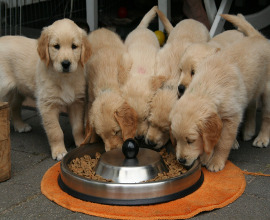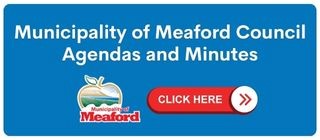 In the Canadian pet food marketplace, there is no shortage of high quality, human grade options to choose from. Today’s pet foods come in many forms: frozen raw, dehydrated raw, fresh rolls, cans, kibble, and so on. While manufacturers of super-premium pet foods use ingredients of the highest quality available, many of them do not use certified organic ingredients.
In the Canadian pet food marketplace, there is no shortage of high quality, human grade options to choose from. Today’s pet foods come in many forms: frozen raw, dehydrated raw, fresh rolls, cans, kibble, and so on. While manufacturers of super-premium pet foods use ingredients of the highest quality available, many of them do not use certified organic ingredients.
For a time, certified organic pet foods were a very popular trend, but for several reasons this trend has died off.
Let’s dive into a few reasons why many pet food manufacturers have taken a step back when it comes to sourcing certified organic ingredients for their products.
First of all, certified organic ingredients are expensive. In recent memory, several manufacturers have gone to great lengths to formulate all-organic pet food. And in the long run they have not done well, mainly because consumers find it overly cost prohibitive – especially for those with large breeds, or multiple pets.
That being said, organic ingredients are found in many pet foods; they simply don’t seek out the organic certification, again because of the cost.
During the manufacturing process, virtually all commercial pet foods are fortified with added vitamins, minerals, and amino acids that cannot be classified as organic. This is not because they are considered unhealthy or of poor quality, it is simply due to current regulations. Because of this, these pet foods cannot be designated as completely organic.
Now, it is important to note that brands not pursuing organic certification aren’t necessarily hiding anything. Super-premium pet foods are the best-quality commercial pet foods on the market, and they go to great lengths to source the healthiest ingredients. Essentially, they select ingredients that walk the organic line, meaning they are still grown organically, only without the certification.
In fact, certain top Canadian brands, like Carna4, Acana, and Orijen, only select human grade, USDA- or CFA-inspected ingredients in their foods. They also avoid ingredients containing hormones, antibiotics, or GMOs. And they most certainly avoid consumable goods from China.
These standards are often what most pet owners are looking for. Informed pet owners want federally inspected, human-grade ingredients for their pups, and tend to be less concerned with whether or not the product is organic. Because of this, the certified organic pet food market is relatively small.
A significant disadvantage for pet owners looking for entirely organic pet foods is selection. Since there are very few organic pet foods on the market, rotating diets is not a reality. Fewer choices leave consumers looking elsewhere for healthy pet food alternatives.
When a pet food is marketed as containing organic ingredients, oftentimes they are referring to select grains, fruits, and veggies, which do not account for much of the food’s overall makeup.
My advice to pet owners looking for an organic pet food is this: if you’re looking for a prepackaged, commercial pet food that is entirely organic, you’re going to be disappointed. In this case, the best thing to do is make your own food and hand-select your organic ingredients individually.
Even when we look at the most popular raw pet food manufacturers, fully certified organic options are not offered. This is again because of the excessive cost associated with the certified organic designation. And in fact many of the top pet food manufacturers have, at some point, offered an organic formula. But time after time, they realize that the cost is just too high. While these brands mean to offer the highest quality foods possible, they eventually realize that this can be achieved without the high price tag of being certified organic.
For pet owners who want to give their pets the best foods available on the market, understand that the ‘organic’ certification is not necessarily the mark of being the best quality. Instead, look for federally inspected, human-grade ingredients, with a minimal amount of synthetic vitamins and minerals. Hormone- and antibiotic-free meats, GMO-free produce, and grain-free diets are also a strong consideration.
Brandon Forder – also known as The Pet Expert – is vice-president of Canadian Pet Connection, a family-owned and -operated business located in Meaford. He has over twenty years’ experience specializing in pet nutrition, behaviour, and lifestyle. Canadian Pet Connection is an industry leader committed to providing their clients with the highest levels of personal, attentive service.









